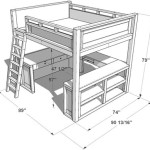Is It Better to Put Baby Bed Early?
The question of when to transition a baby from a bassinet or crib to a "big kid" bed is a common concern for parents. There's no one-size-fits-all answer, as each baby develops at their own pace and has unique needs. However, understanding the potential benefits and drawbacks of an early transition can help parents make an informed decision that aligns with their child's developmental stage and their own family dynamics.
Potential Benefits of Early Bed Transition
Some parents opt to transition their babies to a bigger bed early, often around the age of 18 months or even sooner. This can stem from several potential benefits:
- Increased Mobility and Independence: An early bed transition can empower a baby to explore their room and move freely, fostering a sense of independence. This can be especially appealing for active toddlers who crave more space and freedom.
- Improved Sleep Habits: In some cases, moving to a bigger bed can help a baby transition to a more independent sleep schedule, potentially reducing night wakings and improving sleep quality.
- Easier Potty Training: For parents embarking on potty training, having a bed that's easier to get in and out of can be a valuable asset. Children can more readily access the potty during the night, reducing accidents.
- Family Dynamics: Lastly, an early transition might be driven by practical family considerations, such as limited space, the desire for a different room configuration, or the arrival of a new sibling.
Potential Drawbacks of Early Bed Transition
While early bed transitions can offer advantages, it's essential to acknowledge the potential drawbacks:
- Safety Concerns: Young children are particularly vulnerable to falls from beds. An early transition increases the risk of falls, which can lead to injuries. This is especially true for babies who are more mobile and adventurous.
- Regression in Sleep Habits: While some babies may experience improved sleep, others might experience regression in sleep habits after transitioning to a bigger bed. This could be due to increased freedom and exploration, leading to more nighttime activity.
- Increased Anxiety: For some babies, a bigger bed can be overwhelming and trigger feelings of anxiety, potentially leading to sleep difficulties. This is especially true for babies who rely on a strong sense of security and familiarity.
- Potty Training Challenges: In some cases, an early transition might be counterproductive for potty training. Babies who are not fully ready for potty training might be more prone to accidents, potentially leading to frustration for both child and parent.
Key Considerations When Deciding on Bed Timing
Ultimately, the decision of when to transition a baby to a bigger bed is a personal one, based on a family's unique circumstances and their child's individual development. Several factors should be considered:
- Baby's Development: Assess your baby's physical capabilities and maturity level. Can they climb in and out of the bed safely and independently? Do they show signs of readiness for a bigger bed, such as expressing a desire for more space or becoming increasingly independent?
- Sleep Habits: Consider your baby's current sleep patterns and any potential changes that might occur with a bed transition. How much sleep do they get? How often do they wake up during the night?
- Potty Training Progress: If your baby is undergoing potty training, factor in how their progress might be affected by a bed transition. Are they showing signs of readiness for potty training? Do they experience many accidents?
- Family Dynamics: Assess your family's needs and preferences. Is there a specific reason for transitioning your baby to a big bed, such as a desire for more space or the arrival of a new sibling?
Observing your baby's cues and consulting with your pediatrician can provide valuable insights. There is no right or wrong answer, and the right time for transition will vary from child to child. The key is to be patient, observant, and flexible, adapting to your child's individual needs and development.

I Put My Kids To Bed Early And Love It

How To Put Your Baby Sleep Pampers
How To Get Your Baby Sleep In A Crib Pampers

Put Your Kids To Bed Earlier Because Science Says It S Good For Their Health Yours Filter Free Pas

Put Your Kids To Bed Earlier Because Science Says It S Good For Their Health Yours Filter Free Pas

When Is It Safe For My Baby To Sleep With A Blanket

Sleep And Your 1 To 3 Month Old For Pas Nemours Kidshealth

Why I Put My Kids To Bed At 7 Your Modern Family

When Can Babies Sleep On Their Stomach

How To Get Baby Sleep In A Cot Woolroom







